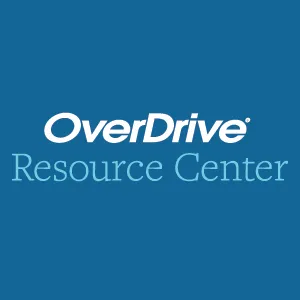
So You Want to Work in a Library: Back of House Edition
I remember the moment I realized that librarian was a potential career path. I hadn’t thought about it even though I’d been semi-regularly using libraries since kindergarten (and maybe before). No, I was always on the academic path, from the moment I started thinking about college. But there I was, a Junior at Washington University in St. Louis, probably working on some essay or research project, sobbing over my laptop in the middle of the night and moaning to my roommate about how I loved doing research but hated the deadlines and dreaded my academic-focused future.
“Why can’t you just be a librarian, then?”
I stopped crying immediately. The thought hadn’t crossed my mind at all, and I had no idea why.
The next day (or whenever I finished my paper) I started looking into what I needed to become a librarian, and also looked to see if there were any jobs at the university library, because money was always good and I hadn’t gotten a new work study job just yet that year. I had seen plenty from the public side, but didn’t really know what working in a library entailed. Luckily, amazingly, there was a student assistantship available in the library’s new Digital Services department.
And the rest, as they say, is history. (Thanks, roomie.)
I haven’t worked in every kind of library, but I do have experience working in the support areas in multiple university libraries, a public library system, a government library, a special library, and as an all-duties school librarian. I have a basic knowledge of what the duties of various types of job classifications entail, even though I haven’t done them all myself. Not every place you go is going to be the same, obviously, but I can tell you about a few jobs you might find yourself doing if you love libraries but don’t particularly want to work (or aren’t very good at working) in public service.
Note: there are a LOT of back of house jobs for both people with ML(I)S degrees and without them, but I’m mostly going to be talking about Librarian jobs in these areas.
Technical Services
If you work in a big enough library or system, it’s going to have a technical services department. This is where you’ll find the folks who work in cataloging and otherwise preparing materials for their journey to users’ hands. While most public libraries don’t have to do 100% original cataloging anymore, libraries that have a lot of special materials or obscure books might have to do it by hand. Take at least one intro to cataloging class. Technical services might also be where you find the people who manage the integrated library system (ILS) or library management system (LMS), which could be a whole job on its own. It’s like a systems job with library knowledge. Print serials, interlibrary loan, government documents, and other collections categories might fall under technical services instead of Collection Development and/or Management.
Acquisitions/Collection Management
Acquisitions is a part of collection management, but collection management isn’t just acquisitions. Some libraries have people who select books and other media for a particular department or group of departments, or in certain categories. They’re also usually in charge of writing the policies for deselection (weeding) and moving things between branches, if that’s a thing. They might manage the library’s collection budget, and might also be involved in purchasing materials in digital formats, from companies like OverDrive. And they may or may not encompass the next bit.
Online Resources/Databases
You might know these by several names: research databases, online resources, electronic resources, e-library, whatever. There might be one person in charge of keeping track of them, or a whole team. At a university or special library, you might have to get online journals from countless different companies, in big sets and individually, and you might be involved in not only maintaining access, but keeping up with additions, and getting new ones. You might have a minion (ahem, student assistant? aide?) who checks for broken links every once in a while. And you might have to write massive documents called RFPs with extensive spec sheets and trials from multiple vendors who want you to give them money. You might also have to be the person who knows the most about these databases, because you’ll be the one people call when things aren’t working.
Digital Services/Archives
As I mentioned in my little origin story, the digital library is where I started out. This was in the late 2000s, so I was learning things like XML and metadata maintenance in order to make the transcripts of Wash U’s Eyes on the Prize collection accessible online. Nowadays, there are other programs and markup languages you’d need to know in order to do the best digital archiving. I should also mention that not every library has the space to host their own online archives — you might be working in an archives or for a company that hosts archiving for other organizations. Or you might be in charge of a homegrown server, which is always fun. There are actually whole educational paths that focus strictly on the digital archiving area of library and public records maintenance. But it’s definitely a cool area of library work to look into.
Development and Fundraising
Every library probably has a development/fundraising structure, but not all of them are going to have people who work for the library and coordinate the efforts. A lot of public libraries, for example, can’t do their own active fundraising and have to rely on external foundations and Friends organizations. Other types of libraries might have development coordinators, though, who maintain a list of donor contacts and organize ongoing giving opportunities and appreciation events. In one university library where I worked, this was all done out of the office of the Library Dean, but some libraries have separate departments that only manage development.
Professional Development
And then, there’s a different kind of development. Professional or staff development, staff training or learning, whatever you want to call it, is all about making sure your library continues to be a learning organization. For some library types, that’s about keeping a smaller staff up to snuff on their specialty — a medical librarian can’t be good at their job if their knowledge is still in 2015. And for others, it’s about training new staff on (and keeping veteran staff up to date with) all the things the library has to offer across the board. This can be anything from policy to readers’ advisory to the above mentioned online resources. There might be special things people who work with certain groups or in certain categories need to know, but the professional development coordinator (if there is one) is in charge of knowing what needs to be known. Some libraries and library systems have whole departments dedicated to this, while others rely on extra work done by people in other roles. Definitely something to look into.
As I said before, there are definitely other things you can do in a library, with or without a library degree: website management, IT, marketing, accounting, administrative work, instructional design, DEI and community development — and so much more. There are probably lots more. The best thing you can do is keep an eye out for the type of thing you like or are interested in, and what kind of community you’d like to do the work for. The rest is up to you.
For more tips, check out this guide on places to find library jobs.





